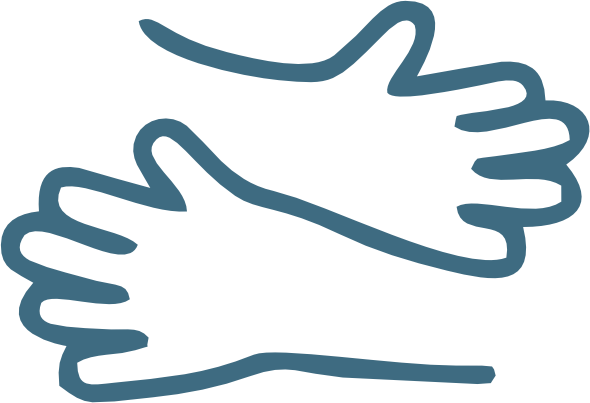Mental Healthy F.i.T. Tips
So...what do you need to know about mental health?
Mental health is...
Mental health is our emotional, psychological, and social well-being. It is how we think, feel, and act. It helps determine how we handle stress, relate to others, and make healthy choices. Just like our physical health, it is important to all people at any age group.
Mental illness is...
Mental illnesses are conditions that affect a person’s thinking, feeling, mood or behavior in a way that impairs their ability to relate to others and function each day. Examples include MDD (depression) and schizophrenia. Poor mental health and mental illness are not the same.
Mental and physical health are equally important components of overall health. Mental illness, especially depression, increases the risk for many types of physical health problems, particularly long-lasting conditions like stroke, type 2 diabetes, and heart disease. Similarly, the presence of chronic conditions can increase the risk factors and exacerbate the symptoms of mental illnesses like Depression or Bipolar Disorder.
The MH FIT tips are a simple guide to boost your mental well-being by focusing on mindset, helping others and yourself, self-care, and open conversations. They help you handle challenges, build connections, and create a more balanced and peaceful life.
We created them to make mental health support simple and accessible for everyone. These tips are designed to empower individuals with practical steps to care for their well-being, foster stronger connections, and confidently navigate life’s challenges.
Mental health should never feel overwhelming—the MH FIT tips are here to guide and inspire.

M - Manage Your Mindset
- Cultivate self-awareness to recognize negative thoughts and reframe them.
- Use positive affirmations and focus on progress over perfection.
- Set achievable goals to reduce stress and build confidence.

H - Help Yourself and Others
- Seek professional support when needed and lean on trusted relationships.
- Actively support friends or family who may be struggling.
- Share your experiences to normalize conversations about mental health.

F - Find Balance
- Create a routine that balances work, rest, and leisure.
- Set boundaries to protect your time and mental energy.
- Incorporate moments of gratitude and reflection into your day.

I - Invest in Self-Care
- Prioritize your physical health with proper sleep, nutrition, and exercise.
- Engage in hobbies or activities that bring joy and relaxation.
- Take small, consistent steps to build resilience and inner peace.

T - Talk About It
- Openly express your feelings and listen actively to others.
- Normalize seeking help and sharing struggles to reduce stigma.
- Build a support system to foster mutual understanding and strength.
Remember to always seek professional medical advice and assistance as needed.
More than 50% of people will be diagnosed with a mental illness or disorder
1 in 5 People will experience a mental illness in a given year.
1 in 5 children, either currently or at some point during their life, have had a seriously debilitating mental illness.
1 in 25 People live with a serious mental illness, such as schizophrenia, bipolar disorder, or major depression.
Early adverse life experiences, such as trauma or a history of abuse (for example, child abuse, sexual assault, witnessing violence, etc.) Experiences related to ongoing medical conditions, such as cancer or diabetes. Biological factors, such as genes or chemical imbalances in the brain, drug or alcohol abuse, and social isolation reinforce feelings of loneliness.
Continue your mental healthy education & awareness journey by learning more about mental health
Learn about Mental Healthy F.i.T. programs and events and how you can get involved:
Creating a community without stigma
Through our unique blend of Createucation and Edutainment—leveraging films, fresh ideas, and practical tips—we aim to build a world free from stigma. Our mission is to help individuals experience mental health in a meaningful way, making sense of life’s most pressing challenges with understanding and purpose.